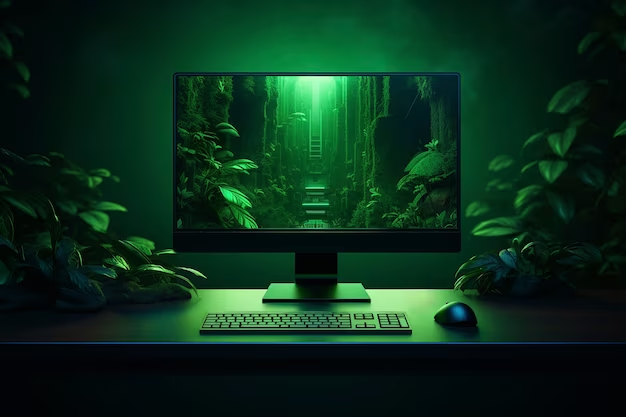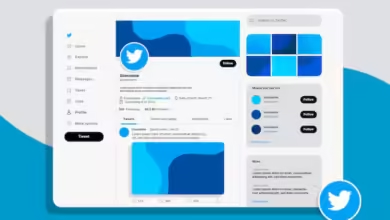onlypc: The Key to Unlocking Your PC’s Potential

When it comes to private computing, nothing beats the pleasure of building your own custom PC. “OnlyPC” is not only a time period; it’s a mindset for people who choice manage, performance, and a tailored revel in. In a international where generation evolves swiftly, the idea of making a system that completely fits your needs is more attractive than ever.
What is “OnlyPC”?
“OnlyPC” refers back to the philosophy of focusing entirely on the essentials of personal computing—optimizing and customizing a computer to serve particular wishes, whether or not for gaming, productiveness, or multimedia advent. This idea embraces the concept of constructing a PC this is absolutely your very own, from deciding on the additives to putting together the very last product.
The Rise of Custom-Built PCs
Custom-constructed OnlyPC have surged in reputation over recent years. With the growing needs of cutting-edge software, greater people are understanding the limitations of pre-built structures. Building your own PC permits you to choose the quality components, avoid needless bloatware, and create a machine that is future-proof and upgradeable.
Why Choose to Build a Custom PC?
Building a custom PC gives numerous blessings:
Performance: You can pick out additives that provide the pleasant performance on your precise responsibilities.
Cost Efficiency: By selecting your elements, you avoid paying for capabilities you don’t need.
Personalization: From the case layout to the lighting fixtures, you could create a PC that displays your personal style.
Satisfaction: There’s a unique sense of accomplishment in constructing some thing along with your very own hands.
Understanding Your Needs
Before you start choosing additives, it’s crucial to recognize your precise needs. Are you building a OnlyPC for gaming, video modifying, or really for everyday obligations? Your supposed use will dictate the additives you select.
Gaming vs. Productivity
A gaming OnlyPC requires a powerful GPU and a excessive-refresh-price display, while a productiveness-targeted PC might prioritize a quick processor and adequate RAM. Knowing your primary use case will assist you are making knowledgeable decisions.
Budget Considerations
Your price range is perhaps the most significant aspect for your build. Fortunately, there are alternatives available for every charge range. However, it’s important to allocate your funds accurately to make sure a balanced construct that doesn’t bottleneck performance.
Future-Proofing Your Build
Technology evolves quickly, and also you need your Onlypc to face the test of time. Investing in a outstanding motherboard and PSU will will let you improve different additives later without having to replace the whole machine.
Components of a Custom PC
Building a PC entails choosing various components, every gambling a vital function within the overall performance and capability of the machine. Let’s destroy down the key parts.
The Heart of the PC: The Processor (CPU)
The CPU is the mind of your pc, responsible for executing instructions and running your packages.
Memory Matters: RAM
RAM, or Random Access Memory, is crucial in your PC’s ability to multitask and handle huge documents.
How Much RAM Do You Really Need?
For gaming and maximum productiveness obligations, 16GB of RAM is commonly sufficient. However, for video modifying, three-D rendering, or going for walks virtual machines, you would possibly need 32GB or extra.
Storage Solutions: HDD vs. SSD
Storage is where your documents, games, and software program are stored. HDDs (Hard Disk Drives) are less expensive but slower, whilst SSDs (Solid State Drives) are faster but more expensive.
Understanding Different Types of SSDs
SSDs are available in unique bureaucracy, along with SATA, M.2, and NVMe. NVMe SSDs provide the quickest speeds, making them best for gaming and boot drives, even as SATA SSDs provide good overall performance at a decrease price.
The Brain: The Motherboard
The motherboard is the backbone of your PC, connecting all of the additives and letting them talk.
Choosing the Right Motherboard for Your Build
When deciding on a motherboard, take into account the CPU socket, form thing, and available features like Wi-Fi, Bluetooth, and USB ports. Ensure it helps future improvements to avoid compatibility problems.
Powering Up: The Power Supply Unit (PSU)
The PSU is chargeable for imparting strength to all of the additives on your PC.
Calculating Power Requirements
Ensure your PSU has sufficient wattage to aid all of your components, with a few headroom for destiny upgrades. Use on line calculators to estimate your power desires correctly.
The Cooling System
Effective cooling is important to retaining your PC’s performance and durability.
Air Cooling vs. Liquid Cooling
Air cooling is extra low-priced and easier to put in, whilst liquid cooling presents higher overall performance, particularly for overclocked CPUs. Choose based totally for your finances and cooling wishes.
The Graphics Card (GPU)
The GPU handles all of the graphical processing, making it important for gaming and video modifying.
Integrated vs. Dedicated Graphics
Integrated graphics are constructed into the CPU and are suitable for simple tasks, even as dedicated GPUs are separate cards that offer a good deal higher performance for gaming and creative paintings.
The Case: More than Just Aesthetics
The case is wherein all of your components are living, and it also affects airflow and cooling.
Factors to Consider When Choosing a PC Case
When deciding on a case, keep in mind its size, airflow, and expandability. A properly case could have masses of space on your components and efficient cooling alternatives.
Building Your PC
Now that you’ve selected your components, it’s time to collect your PC.
Step-by-Step Guide to Assembling Your Custom PC
Preparing Your Workspace
Before you start, make sure you have got a easy, static-unfastened workspace with all the vital gear, along with a screwdriver and thermal paste.
Installing the CPU and RAM
Start by using putting in the CPU into the motherboard socket, then stable the RAM sticks in their slots.
Mounting the Motherboard
Carefully region the motherboard into the case, aligning it with the standoffs, and screw it in area.
Installing the PSU
Secure the PSU in its compartment and join the essential cables to the motherboard.
Connecting the Storage Devices
Install your SSDs or HDDs within the special slots and connect them to the motherboard.
Installing the GPU
Slot the GPU into the PCIe slot at the motherboard and secure it with screws.
Connecting Cables and Testing the Build
Connect all of the essential strength and statistics cables, ensuring they may be securely connected. Before closing the case, strength on the PC to ensure the whole thing is operating successfully.
Post-Build Considerations
Once your PC is constructed, there are a few greater steps to get it up and going for walks.
Installing the Operating System
Install your chosen operating gadget, together with Windows or Linux, from a USB pressure or DVD.
Installing Drivers and Essential Software
After the OS installation, down load and installation the modern day drivers to your additives, in particular the GPU. Also, install essential software like antivirus and productiveness equipment.
Overclocking: Pushing Your PC to the Limits
Overclocking can enhance your PC’s performance through growing the speed of the CPU or GPU. However, it calls for careful monitoring of temperatures and balance.
Maintaining and Upgrading Your PC
Regularly smooth your PC to save you dust buildup and make certain proper cooling. Additionally, maintain an eye fixed out for brand new additives that would beautify your construct inside the destiny.
Common Mistakes to Avoid
Even skilled developers can make mistakes. Here are a few not unusual pitfalls to watch out for.
Skimping at the Power Supply
Never reduce corners at the PSU. A low-excellent PSU can cause volatile overall performance or even harm your components.
Ignoring Cooling Needs
Proper cooling is important. Make positive your case has suitable airflow, and recall adding greater lovers or upgrading to liquid cooling if needed.
Overlooking Compatibility Issues
Always double-test that your components are like minded, in particular the CPU, motherboard, and RAM. Compatibility issues can purpose vast headaches in the course of the build system.
Conclusion
Building your personal OnlyPC is a rewarding revel in that offers whole manage over your computing surroundings. By know-how your wishes, deciding on the proper additives, and following a careful meeting system, you could create a effective, customized gadget with a view to serve you properly for future years.
FAQs
What is the average price of constructing a custom PC?
The price can range extensively, however a mid-variety gaming PC generally charges among $800 and $1,500.
How lengthy does it take to build a custom PC?
For a first-time builder, it could take everywhere from 3 to 6 hours, depending on your familiarity with the additives and the method.
Can I improve my custom PC inside the destiny?
Yes, one of the primary advantages of a custom PC is its upgradability. You can without difficulty switch out components as wanted.
What must I do if my PC doesn’t start after assembly?
Double-check all connections, make sure the PSU is switched on, and seek advice from troubleshooting guides if wished. If problems persist, searching for assist from online forums or a expert is beneficial.
Is it higher to construct a PC or purchase a pre-built one?
Building a PC gives better customization, performance, and value, however it requires time and effort. Pre-constructed PCs are handy however may additionally encompass useless capabilities or decrease-pleasant additives.



